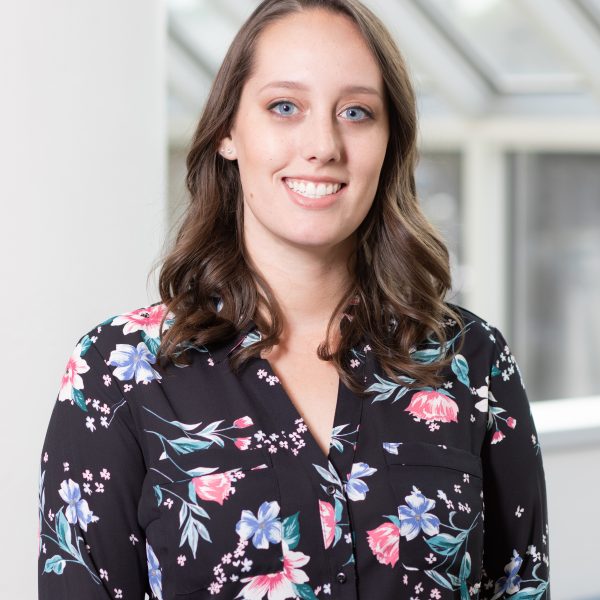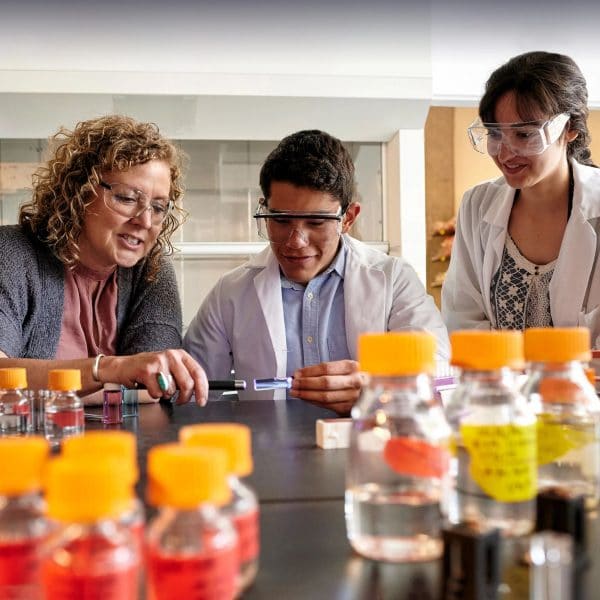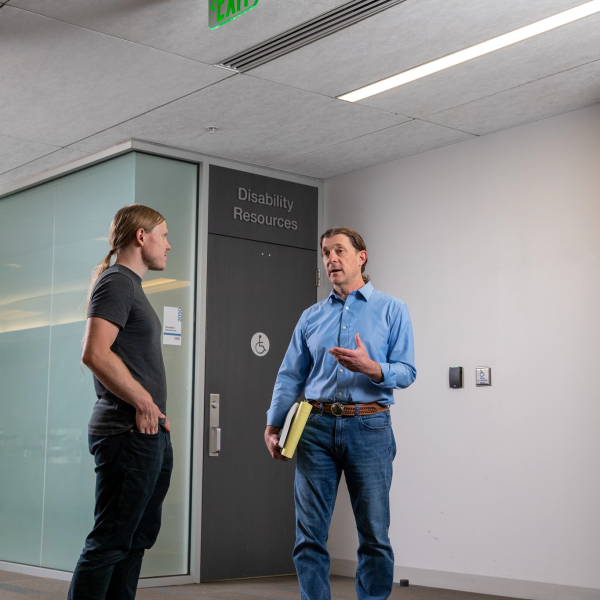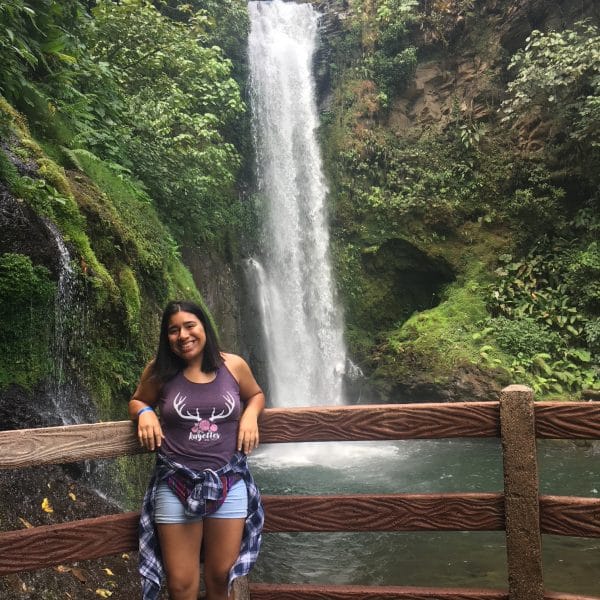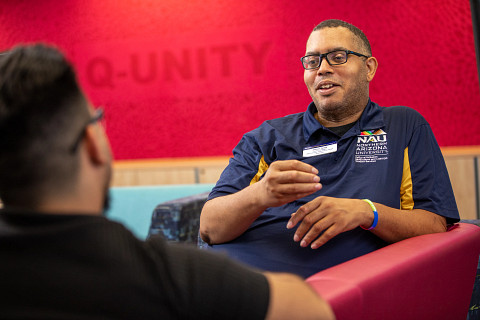
In the Office of Inclusion, Martin Tease starts with small talk to make big improvements in student representation.
Dr. Martin Tease is a Coordinator at NAU’s Office of Inclusion: Multicultural & LGBTQIA+ Student Services, and he wants to know what your favorite movie is. It’s not just small talk. It’s vital to his work.
“Our whole mission really and truthfully is to work with the underrepresented and marginalized populations on NAU’s campus and other campuses across the nation,” Martin said. “To promote all areas of diversity, equity, and inclusion.”
Sometimes, this promotion looks like party planning—coordinating inclusive events like the Rainboo! Halloween Dance Party. Other times, it takes the form of providing training for students, staff, and faculty that enhance campus awareness of trans communities, the issues and challenges facing undocumented communities, allyship, unconscious bias, and more. Martin’s work can also be direct advocacy for individual students and their multicultural needs. That’s when he might ask you about your favorite movie, “as an icebreaker,” he said, “as a way to get into any kind of conversation when we start talking multiculturalism because it is a rough topic for some people.”
It may be a means to break the ice, but blockbusters aren’t just some arbitrary topic Martin pulled out of a hat. Movies are his passion. He engages the art form with an attentive, critical eye.
“Most people who know me can’t stand me while watching a film because I’m dissecting the film as it goes,” he said.
He may be gently self-deprecating, but you can bet his dissections are more incisive than the average commentary. Martin is a bona fide expert on all things media and film.
His journey through media studies began at NAU, where he earned a bachelor’s degree through the program that is now Creative Media and Film. From there, Martin went to Los Angeles and spent 15 years on the frontlines of the movie industry. These years gave him a wealth of experience, but he was eventually drawn back to Arizona by a fondness for the Flagstaff community.
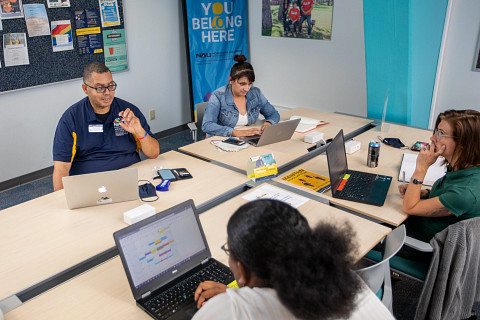
Upon his return to Flagstaff, Martin served as the Director of the Murdoch Center, an inter-generational and multicultural center in Flagstaff’s Southside neighborhood. Through this service, he became concerned with the work of actualizing equity and inclusion, and he followed this absorption across the pond to the University of East Anglia in Norwich, United Kingdom. There he enrolled in a graduate program and pursued a PhD focused on the intersection of cinema and race with a particular interest in Black film. This interest started in part during his time in Los Angeles. While there, he observed that many Black directors were considered only for music videos or films that were deemed categorically “Black,” such as Barbershop or Tyler Perry’s Diary of a Mad Black Woman.
“I was really looking at how we’re making film and why we call it a Black film, whether it’s a Black film, and the whole filmmaking process,” he said.
After earning his PhD, Martin made his way back to the states and returned to Flagstaff, where he leaned into multicultural service by taking up the position he holds now. Though at times they may seem disparate, Martin finds a deep connection between his film studies and the work of actualizing inclusion.
Getting into good trouble means being able to advocate.
“I love what I do and the way that I blend the two and bring in the multicultural, diverse, and inclusive element of TV and filmmaking is by talking about why it’s important for all of us to be represented and reflected,” he said.
Championing the right of representation for his students is Martin’s ultimate goal, and he pursues it even in the face of resistance. He’s all about getting into “good trouble”—a term he borrowed from the late statesman John Lewis. It’s a term that, to Martin, means having the willingness to push against the status quo.
“Getting into good trouble means being able to advocate,” he said. “It’s getting people to stop thinking that there’s a one-size-fits-all approach for every single person. That’s where the multicultural aspect of all this comes in. Although we are talking mostly to underrepresented ethnic and LGBTQIA+ populations, it still applies to other people because there might be something that you specifically have in your background that means you need something completely different. The good trouble is making the administration or making those who are in charge rethink policy and procedures because they don’t always fit.”
While Martin might be willing to fight hard battles for his students, he is far from hard-hearted. He takes pride in his positive attitude.
“My last name is Tease, so I’m always either talking trash or laughing,” he said. “I always try to take a very jovial and light approach to most things, because if not, then it’s not fun, right? It’s not good.”
That’s why Martin wants to know your favorite movie. Breaking the ice is just the first part of getting to know one another, making fun conversation, and working toward a deeper understanding in which the real work can begin.
“If you want to be an advocate or if you want to be an ally, that’s great,” he said. “But you have to start from the basis of understanding. That’s where I’m at.”



